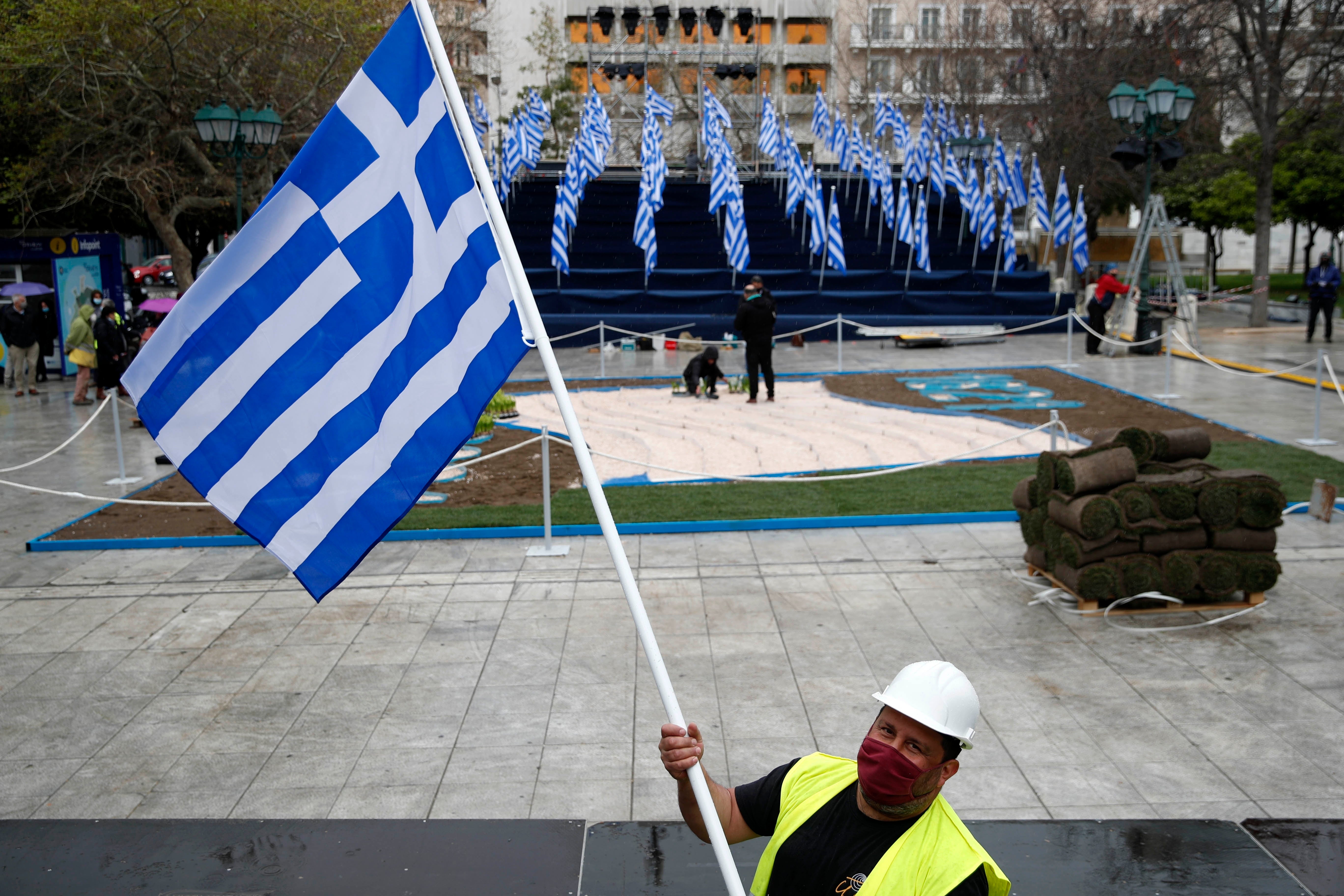Greece kicks off events for bicentenary of independence war
Greece is kicking off two days of celebrations to mark the bicentenary of the start of the country’s war of independence, although events are far more muted than originally planned due to the coronavirus pandemic

Your support helps us to tell the story
From reproductive rights to climate change to Big Tech, The Independent is on the ground when the story is developing. Whether it's investigating the financials of Elon Musk's pro-Trump PAC or producing our latest documentary, 'The A Word', which shines a light on the American women fighting for reproductive rights, we know how important it is to parse out the facts from the messaging.
At such a critical moment in US history, we need reporters on the ground. Your donation allows us to keep sending journalists to speak to both sides of the story.
The Independent is trusted by Americans across the entire political spectrum. And unlike many other quality news outlets, we choose not to lock Americans out of our reporting and analysis with paywalls. We believe quality journalism should be available to everyone, paid for by those who can afford it.
Your support makes all the difference.Greece on Wednesday kicked off two days of celebrations to mark the bicentenary of the start of the country’s war of independence, although events are far more muted than originally planned due to the pandemic.
Dignitaries from Britain, Russia and France — the great powers that provided vital assistance to the nation's bid for independence from the Ottoman Empire — as well as from Cyprus began arriving in Athens on Wednesday. Celebrations are to culminate in a military parade, accompanied by air force overflights, in central Athens on Thursday, Greece’s Independence Day.
But with Greece struggling with a renewed surge in coronavirus cases and deaths, the public will not be allowed to attend the parade, which will be broadcast live by state television.
Despite being under lockdown-type measures since early November, the country has seen spiraling coronavirus infections, with record numbers of patients intubated in intensive care units and dozens of daily deaths. As of Tuesday evening, the overall pandemic death toll had reached 7,580 and there were just under 242,350 total confirmed infections in the country of around 11 million.
On Thursday, major avenues in the center of the capital will be closed to traffic for the parade, while thousands of police were being deployed for security. Authorities have banned seven rallies and protests that had been planned in Athens on Thursday.
The parade is to be attended by Russian Prime Minister Mikhail Mishustin, Britain’s Prince Charles and his wife Camilla, the Duchess of Cornwall, French Defense Minister Florence Parly, and Cypriot President Nicos Anastasiades.
On Wednesday evening, Prime Minister Kyriakos Mitsotakis is to host the visiting dignitaries at Greece’s newly renovated National Gallery, in an event also attended by Greek President Katerina Sakellaropoulou. With Parly due in Athens later in the day, France is to be represented at the art gallery by its ambassador.
The 200th anniversary of the start of Greece’s war of independence comes at a time of frosty relations with neighbor and NATO ally Turkey Tension between the two countries spiked last year over territorial and energy exploration rights, with warships from both nations facing off in the eastern Mediterranean.
Friction has eased somewhat in recent months, with both sides restarting a long-running process of exploratory talks. Turkey has also withdrawn its exploratory ships from waters claimed by Cyprus and Greece.
“This fact is not insignificant,” Mitsotakis said, after meeting in Athens Wednesday with Anastasiades. “However, it remains to be proven if this will be lasting.”
Mitsotakis said it was “in Turkey’s hands to ensure if this is an honest gesture of de-escalating tension and conforming to international law, or if it is yet another diversionary maneuver.”
Long-standing differences between the two include territorial claims in the Aegean Sea, and the situation in the ethnically divided island nation of Cyprus, split since 1974 when Turkey invaded following a coup aimed at unifying the island with Greece. A Turkish Cypriot state declared in the north is recognized only by Turkey.
The Greek independence revolt started in the Mani region of the southern Peloponnese peninsula in 1821 and continued for years without official foreign support, with the Greeks gradually becoming riven by dissent and infighting. In 1827, with the revolution almost squashed, the war fleets of Britain, Russia and France intervened to destroy a Turkish-Egyptian fleet in the Bay of Navarino, in the western Peloponnese.
This crucial blow enabled the Greeks to fight on and eventually gain independence in 1830.